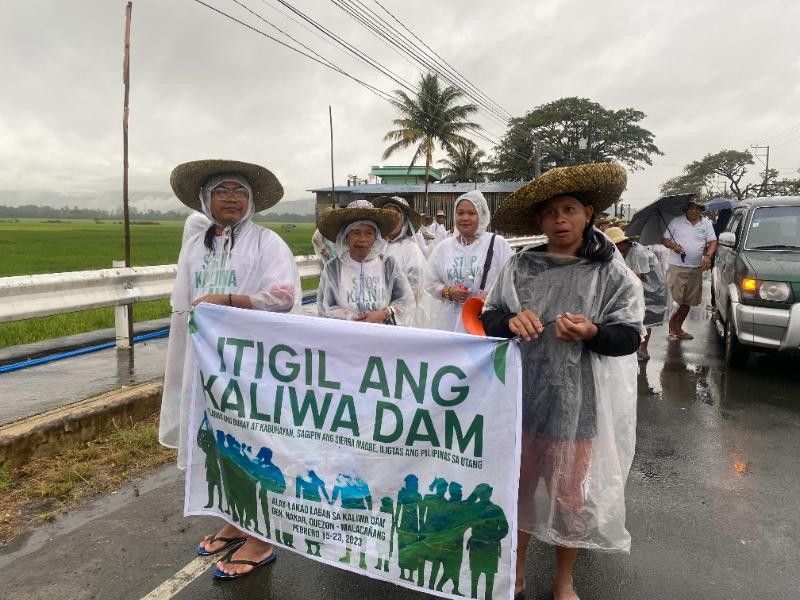Dumagat-Remontados opposed to Kaliwa Dam urge NCIP to defend their rights

MANILA, Philippines — Dumagat-Remontados who are marching to oppose the construction of Kaliwa Dam called on the National Commission on Indigenous Peoples to stand with them instead of acting as the mouthpiece of the project proponent.
In a release on Tuesday, the indigenous peoples opposed to the China-funded Kaliwa Dam accused the NCIP of being “spokespersons” of the Metropolitan Waterworks and Sewerage System. Kaliwa Dam is touted by the government as the solution to Metro Manila’s water problems.
They called on the commission to fulfill its mandate of protecting and promoting the interest and well-being of indigenous peoples.
“NCIP should be defending the indigenous peoples, not issuing statements for the MWSS,” they said in Filipino.
NCIP-Calabarzon on Monday issued a statement claiming that the process of getting the free, prior and informed consent (FPIC) of indigenous communities for the project was conducted properly.
The agency added that the design of Kaliwa Dam is different from Laiban Dam—a project conceptualized during the administration of former dictator Ferdinand Marcos Sr.—and will not submerge the communities of Yokyok, Makid-ata, Cablao and Baykuran in General Nakar, Quezon province
SPECIAL REPORT: In the abundance of water
Envi, socio-cultural costs
In response, the Dumagat-Remontados said the FPIC and consensus building processes were full of irregularities
“In General Nakar, five out of six clusters voted no, while only one voted yes. They pursued a fourth general assembly even if the process was not orderly and only a few leaders were asked to sign. Only those who voted yes signed, and those who voted no were not asked to sign,” Dumagat elder Silvino Astoveza said in Filipino.
They also claimed that the commission brought people from other towns and police during the conduct of the consent process.
The indigenous peoples urged the Senate to conduct an inquiry and form an independent fact-finding panel to investigate the FPIC process for the P12.2-billion dam.
The Dumagat-Remontados also stressed that the project will disrupt not only Sierra Madre’s biodiversity but also the lands where they rely on for food and livelihood.
According to them, 1,400 Dumagat-Remontado families in the provinces of Rizal and Quezon will be affected by the Kaliwa Dam. Project proponents, however, said that only 46 families will be directly affected by the dam.
“It will destroy not only our environment, but also our lives, our culture, our livelihood, and our burial grounds,” said Tata Venus, an elder from Makid-ata community.
March to Malacañang
The Dumagat-Remontados also refuted the accusation of the NCIP that they are being used by “interest groups” to forward what the agency claims is a “crooked and deceptive agenda.”
“It’s not true that we’re being used. We are voluntarily marching from our communities because our livelihoods would be lost if the dam is built. We don’t have to walk for kilometers if authorities are listening to us,” they said.
Affected communities and their supporters began their 150-kilometer journey to Malacañang on February 15. They will arrive at the presidential palace in Manila on Thursday, where they expect to dialogue with President Ferdinand Marcos Jr. and ask him to halt the construction of Kaliwa Dam.
Dumagat-Remontado leaders who supported the project on Tuesday received “disturbance fees” for the construction of the dam.
Tunneling in the project site already began last year.
PHOTO ESSAY: Agos River: Where life flows for the Dumagat people
- Latest



























